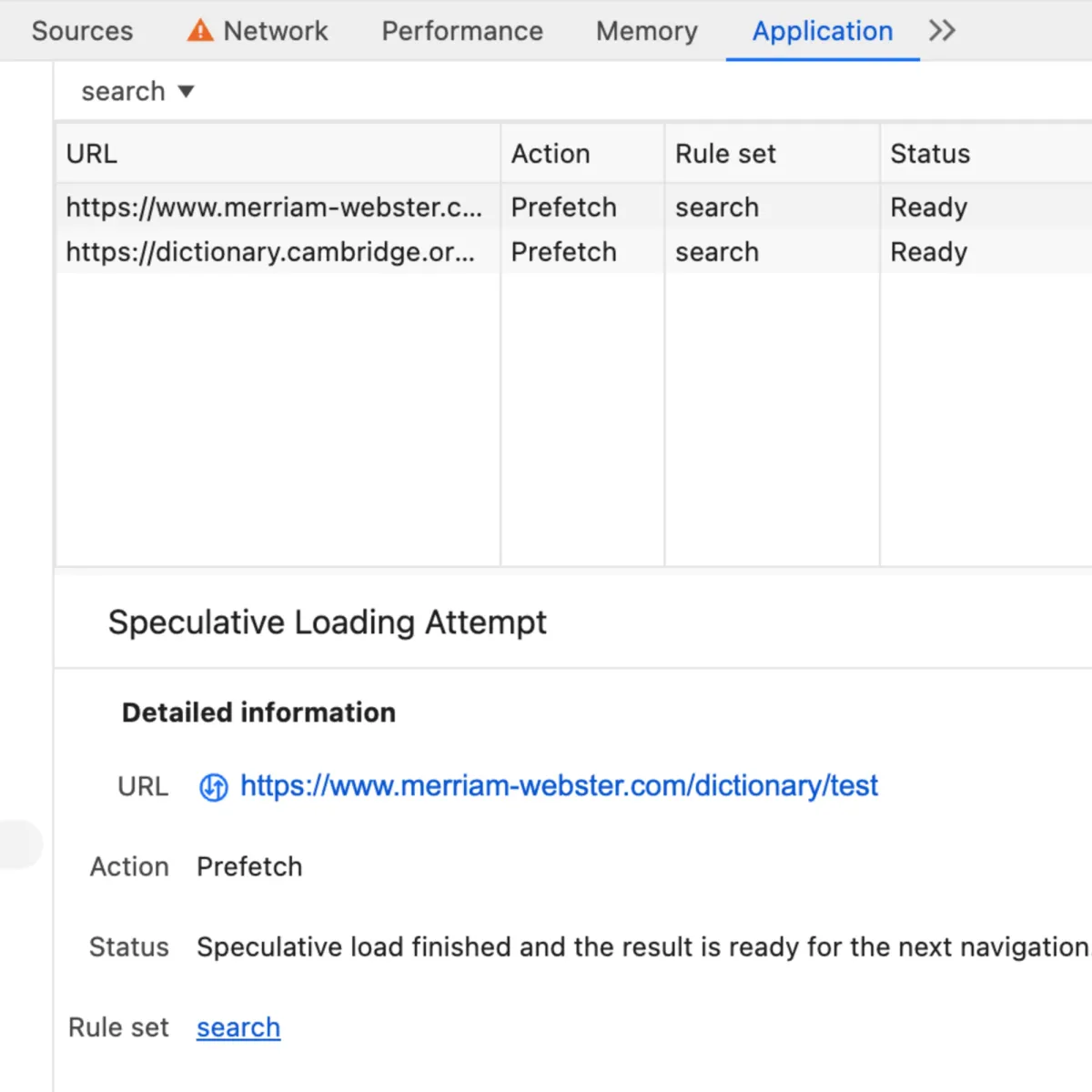
Google Search has integrated a new prefetching system that reduces page loading times substantially, announced on February 12, 2025. The implementation of the Speculation Rules API marks a significant technical advancement in search result delivery speeds.
According to Barry Pollard and Oleksiy Busaryev from the Chrome development team, the system demonstrates notable improvements in Largest Contentful Paint (LCP) metrics. Mobile users on Chrome for Android experience a 67-millisecond reduction in loading times, while desktop users see a 58.6-millisecond improvement.
The technical implementation operates through two distinct mechanisms. The primary system automatically prefetches the first two search results as soon as a user performs a search. A secondary system activates when users hover over other results, implementing what Google terms "moderate eagerness" prefetching.
Privacy considerations have been central to the development of this system. The implementation utilizes a private prefetch proxy in Chrome, which anonymizes user IP addresses before they click on search results. Additionally, the system employs strict referrer policies to prevent the transmission of search-related data through URL parameters.
The prefetching system includes specific technical limitations designed to protect user privacy. When users have existing cookies for a website, the system disables prefetching for that site to ensure accurate page loads and maintain privacy protections. This trade-off means that users with existing site cookies will not benefit from the improved performance, though they may still experience faster page loads due to cached assets.
Desktop implementation of the complete system concluded in December 2024, following a staged rollout that began with mobile devices in October 2022. The mobile version currently only implements the automatic prefetching of the first two results, as testing showed no significant improvements from hover-based prefetching on mobile devices.
Browser support remains limited to Chromium-based systems, though Google has published the API specification through the W3C standards process. The private prefetch proxy functionality is currently exclusive to Chrome, distinguishing it from other Chromium-based browsers.
For sites beyond Google Search, implementation of similar systems requires additional user permissions. Users must enable Extended Preload support in their settings to allow non-Google sites to utilize Google's private prefetch proxy. This requirement exists because the system introduces Google as an intermediary between users and third-party sites.
Technical monitoring of the system occurs through Chrome's DevTools Application Speculation tab, where developers can observe prefetch attempts and their success rates. The implementation uses specific JSON configuration structures to define prefetch rules and privacy requirements.
The Search team continues testing additional speed improvements. Current experiments include prerendered search results pages for users with preload enabled, specifically when typing queries in Chrome's address bar or using the Android search box.
This technical implementation represents part of Google Search's ongoing performance optimization efforts. The company notes that even millisecond improvements accumulate significant benefits across their user base, given the scale of Google Search's daily operations.
The announcement coincides with broader industry discussions about web performance optimization and privacy protection in modern browsers. While the immediate benefits are limited to Chromium-based browsers, the standardization process through W3C suggests potential future adoption by other browser vendors.

